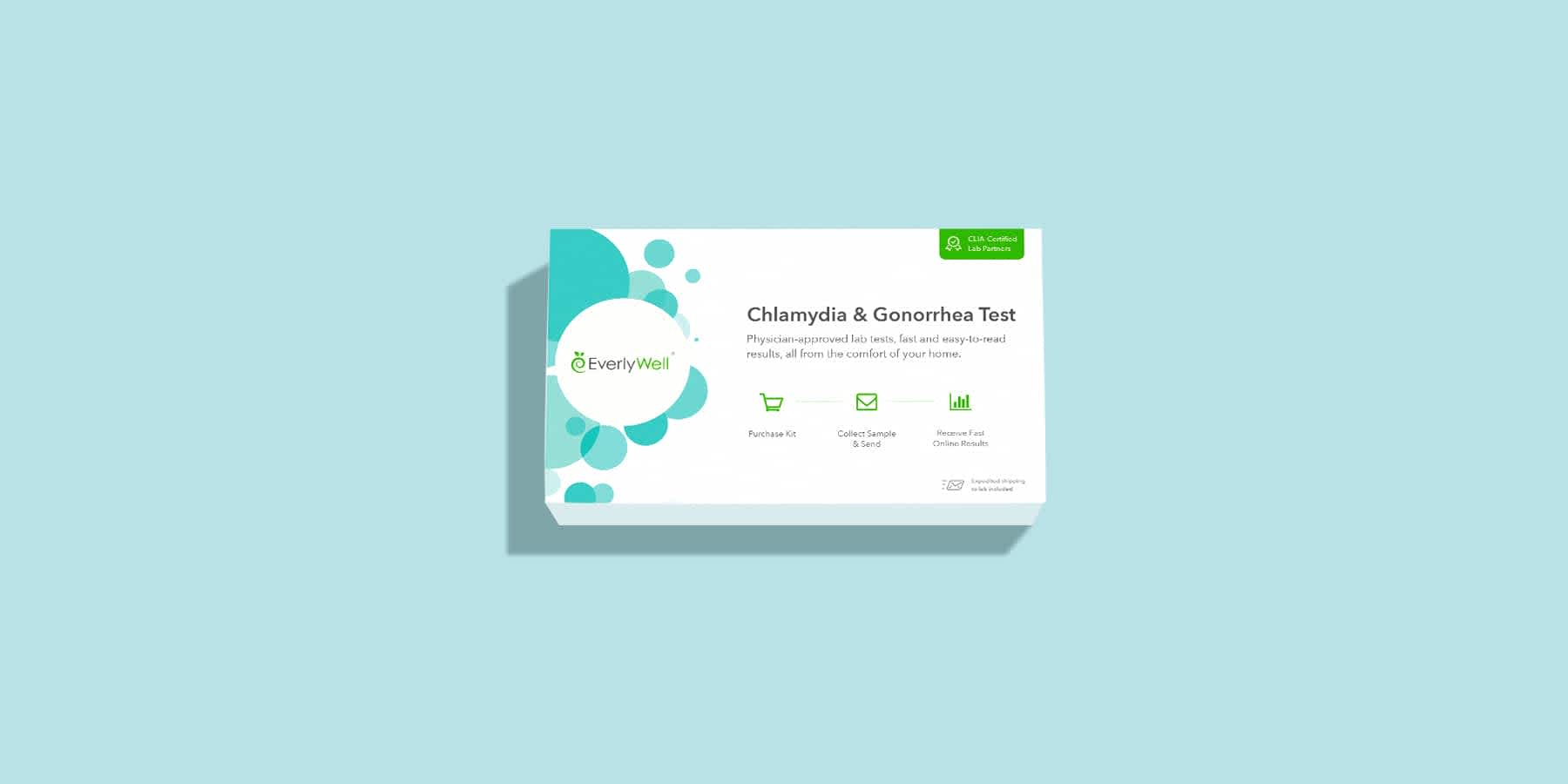
How Long Does a Chlamydia Test Take?
Medically reviewed by Rosanna Sutherby, PharmD on January 21, 2021. To give you technically accurate, evidence-based information, content published on the Everlywell blog is reviewed by credentialed professionals with expertise in medical and bioscience fields.
Table of contents
- How Do Chlamydia Tests Work?
- How Long Does a Chlamydia Test Take?
- Who Should Get Tested?
- Related Content
Chlamydia is one of the most common sexually transmitted diseases. It affects upwards of 3 million Americans every year. While it is easy to treat with antibiotics, the sexually transmitted disease of chlamydia often presents no symptoms until it has advanced to later stages. Untreated chlamydia can be detrimental to your long-term general and sexual health, even contributing to infertility in some cases. That’s why regular chlamydia testing is important if you’re sexually active and having sexual intercourse regularly—but how long does a chlamydia test take? Here, we dive into more detail around chlamydia testing (including answering the question: how long does it take for chlamydia to show up on a test?), so read on to learn more about this common sexually transmitted infection.
How Do Chlamydia Tests Work?
You can’t tell if you have chlamydia based just on symptoms alone. (Note that symptoms of STDs in women and men can be different.) Chlamydia symptoms can often mirror those of other health conditions, such as other STDs or urinary tract infections. Testing offers an easy, straightforward way to confirm if you do have chlamydia bacteria..
Chlamydia tests work by identifying indicators of chlamydia bacteria (Chlamydia trachomatis) in a given sample. Samples can be collected in two main ways: urinating into a container or with a swab. The swabbing process involves wiping a small cotton bud over the vagina, anus, urethra, or cervix of the potentially infected person.
Related: Chlamydia vs. UTI: What's the Difference?
How Long Does a Chlamydia Test Take?
Once the samples have been collected, they are sent to a lab for testing. The time it takes to process the sample can vary. If you’re getting tested via your healthcare provider’s office, you can generally expect to get results within 7 to 10 days after the sample collection.
On the other hand, if you are using the Everlywell at-home chlamydia test, you’ll receive secure, online results just a few days after the lab receives your sample.
Most experts suggest that it can take up to 14 days following initial exposure with an infected sex partner for this bacterial infection to show any symptoms. For this reason, if your sex partner has recently tested positive but you receive negative results from your test, you may be advised to repeat the test if it has been less than two weeks since you last had sexual intercourse. This is because the infection may still be in its early stages when it is more difficult to identify.
Who Should Get Tested?
Aside from those who show noticeable symptoms, sexually active women under age 25 should get tested for chlamydia at least once per year, according to the Centers for Disease Control and Prevention. The same is true for men who have sex with men, even if condoms are used consistently.
If you have recently been treated for chlamydia infection, your healthcare provider may also advise that you receive another STD test three to four months after your treatment has ended to confirm that the treatment was successful.
It is also important that your sexual partner (or any recent short-term sexual partners) also get tested if you’ve tested positive. This can prevent the larger spread of chlamydia in the community, and it can prevent you and your partner from passing the infection back and forth through unprotected sex. (Related: Can chlamydia come back?)
Related Content
5 Possible Long-Term Effects of Chlamydia
How to Treat Chlamydia: What the Chlamydia Treatment Process is Like
References
1. Chlamydia. Planned Parenthood. https://www.plannedparenthood.org/learn/stds-hiv-safer-sex/chlamydia. Accessed January 21, 2021.
2. Chlamydia - Diagnosis. National Health Service. https://www.nhs.uk/conditions/chlamydia/diagnosis/. Accessed January 21, 2021.
3. Screening Recommendations and Considerations Referenced in Treatment Guidelines and Original Sources. Centers for Disease Control and Prevention. https://www.cdc.gov/std/treatment-guidelines/screening-recommendations.htm. Accessed January 21, 2021.
